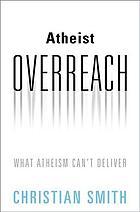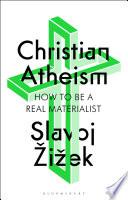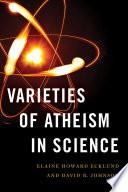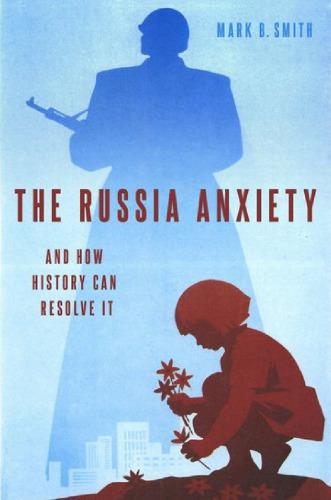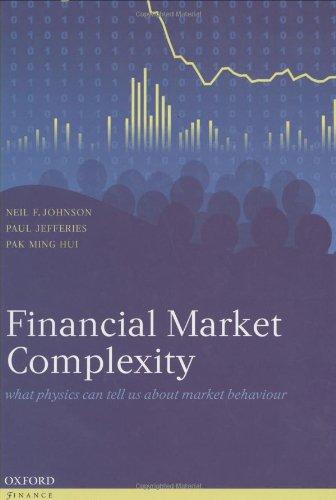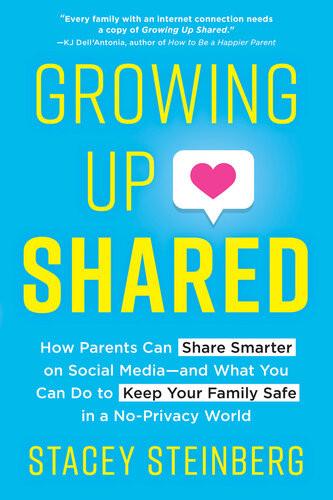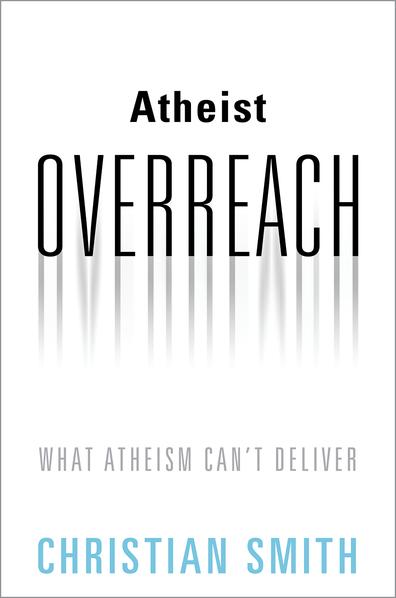ATHEIST OVERREACH
Introduction
People the world over today are engaged in big struggles over the viability and importance of religion in personal and public life. Religions throughout human history have been an important feature of most cultures and have been practiced by billions of people. But the modern world has set in motion powerful forces of secularization and, as part of that, recurrent waves of activist atheism have confronted and criticized religion. Most recently in the West, the so-called New Atheism has pressed hard to discredit belief in God and undermine religious influences in society.
In much of Europe, Canada, Australia, and New Zealand, religious beliefs and practices have been declining for decades. The United States, however, appeared for a long time to be an exceptional case to trends of religious decline, seemingly remaining a bastion of religious vitality. Recent evidence suggests, however, that Americans are also starting to abandon religious beliefs and practices.1 The United States seems to be making a shift toward secularism.2 The arguments of the New Atheists have been among the influences behind that trend.3
Secularism and atheism are not only Western concerns. The forces of secularization and the message of atheism reach around the planet through “carriers” of globalization, such as higher
education, the internet, mass consumer capitalism, and liberal politics. At the same time, in many parts of the world, religious leaders and communities of many kinds are pushing back hard against the pressures of secularism; they want nothing to do with what they view as a godless, secular way of life. At stake in this global struggle is the long-term character of human civilizations—whether religions will continue to have a significant place in human life or instead fade into implausibility and social irrelevance.
Central to this contest over religion and secularity are a set of open questions, the answers to which have big consequences for whether religions or secularism have viable long-term futures and how human societies might best be organized. One is What kind of moral standards are genuinely secular people justified in upholding? Do secularists have good reasons to be “good without God?” Or, if belief in God fades, will that have moral consequences that most people today would consider harmful? Another important question is How much can we rely upon the findings of science to know whether or not God exists? Can science deliver certainty about atheists’ claims? Or are the possibilities of human knowledge about God or gods or other possible superhuman forces not subject to scientific answers?
A third key question is Are human beings somehow “naturally” religious? Does something about natural selection, cognitive wiring in human evolution, or some other factor make religious tendencies an ineradicable feature of human existence? Or could humans as a species actually leave religion behind?
The outcome of today’s global struggle over religion and secularity hinges significantly on the answers to these questions. If people can carry on their personal and social lives with functional standards of morality that produce order, happiness, and flourishing, if science really can prove atheism, and if humans can readily leave behind their previously influential religious beliefs
and practices, then humanity’s long-term future may very well look quite secular. On the other hand if religion actually plays an essential role in upholding desired moral convictions and behaviors, if the findings of science actually do not or cannot endorse atheism, and if it turns out that human beings in fact are “naturally religious” in some important ways, then we should expect religion to persist indefinitely into the future, despite the forces of secularization and atheism.
So, people concerned about matters of religion, secularism, and atheism—whatever position they take—should be very interested in these questions and the best answers to them we can discover. I am. As a sociologist of religion, culture, and morality, I find the ideas and arguments involved in these issues to be fascinating and important. The older I have grown, the less certain about some of the answers I have become. Still, after having thought about these issues long and hard and discussed them with many others, I have come to some definite conclusions. In this book, I offer my best answers to these three crucial questions, in hopes of making a contribution to the ongoing public debate.
This book is different from most books about atheism and religion in that it does not offer an apologetic for either religion or atheism. Nothing in what follows takes a position on whether atheism or any religious claims are correct or not. That is not my concern here. Plenty of other writers have already made such arguments, and none of that has yet resolved the disagreements. I take a different approach to these matters. I do not try to show that atheism as a worldview is fundamentally right or wrong. I focus instead on evaluating certain key positions and claims that many atheists assume or make about science, morality, and human nature. In principle, everything I argue could be correct, and atheism as a general position could still be true. Nonetheless, if even some of
what I claim here is right, then at the very least a lot of atheists need to step back and reconsider their positions on some crucial issues. Those positions are not decisive in telling us whether atheism is correct. But they do matter a great deal for how atheism advances its cause, the kind of claims atheists can make with intellectual honesty, and the sort of new world that atheism can expect to bring into being if as a movement it succeeds.
My overarching argument in this book is captured by its title. Atheism, in many of its current expressions, I maintain, is overreaching. Many contemporary atheist activists are trying to claim too much, attempting to establish positions that are unwarranted, going overboard in confidence and enthusiasm in prosecuting their positions. Again, that does not in and of itself say that atheists are right or wrong. I merely contend that—whatever the truth status of atheism—many of its current advocates are overextending themselves in certain important assumptions, arguments, and conclusions. For atheists, who claim to be advocates of stern reason, realism, and intellectual honesty, that is a big problem, a “performative contradiction.” To live up to their own standards, if I am correct, these atheists will need to pull back from their overreaching. And doing so will have significant implications for the larger, global struggle over religion and secularism.
Rather than weighing in on one side or another of this debate, I want in this book to help the argument move forward in a more intellectually clear, honest, and fair way. It seems to me that if the religion-versus-secularism struggle is going to proceed in an open and fruitful a manner, all parties will need to be carefully heard, appraised, and, where necessary, criticized. I attempt that here on certain issues important to atheism. I do not pretend to accomplish it comprehensively. No single book could do that. My contribution is more modest.
How so? For one thing, this book scrutinizes only the atheist side of the debate. A similar critical exercise could also well be conducted on some religious apologists, as indeed more than a few atheist critics have already done. This book also only engages the atheist authors most relevant to the concerns I raise. Not many of my arguments engage the most famous of the New Atheists— Richard Dawkins, Christopher Hitchens, Daniel Dennett, and Sam Harris, who tend to attract most of the attention and controversy. Instead I take on a broader swath of somewhat lesser known atheist writers.4 I think it enhances the debate to look beyond “the usual suspects.” Furthermore, I address only a limited set of concerns— namely, the three key questions about morality, science, and human religiousness—setting aside a host of other potentially relevant questions and criticisms. I have no interest in marshaling an encyclopedic critique of atheism. I focus instead on what strike me as crucial weak spots in the arguments of many atheists today. This book can be read as a collection of essays rather than a single, progressively unfolding argument, meaning that each chapter can be read on its own and in any order, depending on one’s interest.5 Altogether, however, they emphasize the same overarching theme of atheists’ overreach. The four chapters of this book proceed as follows. The first engages the important question of whether human beings have good reason to be morally “good without God,” as most atheists today claim we do. In that exploration I engage the works of a broad sample of contemporary atheist moralists who insist that we humans not only can be but also have good reasons to be morally upright without God. I argue that the atheist moralists I examine are not so much flat wrong as simply grossly overreaching in their claims. I conclude that, in all intellectual honesty, people inhabiting an atheist universe do seem to have good reasons to be moderately “good,” to behave morally in a provisional and limited sense; but
they do not have good reasons to live up to the high standards of moral goodness demanded by the inclusive, universal humanism that many atheist moralists advocate.
The second chapter follows on the same theme by taking a different angle on a related question. It examines in more expansive terms the question whether people inhabiting a naturalistic universe (that is, one in which only the energy and matter of nature exist, nothing supernatural) are reasonably justified in demanding moral commitments to the kind of universal benevolence and human rights that most atheists, as well as religious believers, today wish to champion and defend. I argue that naturalism does not seem to justify such demands. Naturalism may well justify many important substantive moral responsibilities but not, as far as I can see, a commitment to honor universal benevolence and human rights.
The third chapter shifts focus to the question of what the findings of modern science can and cannot tell us about the existence of God. Here we deal not with ethics (the focus of the first two chapters) but instead with epistemology—that is, what we humans can properly know. Many contemporary atheist writers claim that the findings of science establish the fact that God does not exist. This chapter contests that claim, showing that—whether God exists or not—no such conclusion can be properly drawn from the discoveries of science. I offer some crucial distinctions that I hope help to clarify the much-debated and often misunderstood relationship between science and religion.
The fourth and final chapter shifts the focus to the question of whether or not human beings are in any significant way “naturally religious,” as some religious apologists say. The relevance of this question is clear. If this claim is erroneous and is perhaps a mere self-serving ideology, then the activist atheist agenda for the future faces much better chances of success. If religion in human minds
and societies is not grounded in stubborn human nature, it is instead a mere contingency or dispensable phase of human history. If on the other hand humans possess some natural tendencies to be religious, then the (at least militant) atheist goal of ridding the world of religion faces a serious uphill battle and may be doomed to failure. I suggest in this chapter that humans are indeed naturally religious, when the meaning of “naturally” is correctly specified, but as a matter of natural capacities and tendencies, not in any deterministic way. I then spell out for atheism the implications of such an understanding of natural human religiousness.
I attempt in this book to avoid a strident, partisan tone, even if at times I am polemical to make a point. My purpose here, again, is not to help one side or another of this larger debate to “win”. I seek instead to engage the debate differently, proceeding in the tentative faith that, through the clash of strong rival arguments and replies, weak arguments will falter in the end and good arguments will prevail. To encourage that kind of intellectual advance—gained through agonistic conflict among rival claimants—this book seeks to sharpen the intellectual clarity, honesty, and precision of the arguments and claims in the ongoing debate itself. I hope that, in the larger process, my criticisms will help lead to greater insight and perhaps, dare I say, enlightenment.
Finally, a word about my intended audience. I do not advance my arguments here as an original contribution to the detailed and more sophisticated debates of professional philosophers in the fields of philosophy of religion, ethics, science, and human rights. My explorations are too basic and incomplete for that audience. I do hope philosophers read this book, and I have included scholarly notes that speak to some of their concerns. But I also intend this book to be an accessible invitation to the educated reading public and to undergraduate college students to join or to continue participating
in well-informed conversations about the relative merits of religious and nonreligious conceptions of morality, science, and humanity. The question of atheist overreach involves matters too broadly important to be left only to professional philosophers to analyze in scholarly publications. We must take seriously the best of what philosophers argue.6 But many nonprofessionals often need onramps to access and begin to get up to speed on issues addressed in more complex and specialized academic debates. I intend this book as one such on-ramp.
Just How “Good
without God”
Are Atheists Justified in Being?
Suppose that tomorrow everyone on earth woke up and decided that no God, gods, or superhuman powers or forces existed. Everyone became an atheist. What kind of moral commitments would humanity then rationally be justified affirming, promoting, and living?
This chapter examines the question—much debated of late—of whether humans can be “good without God.” I focus on arguments advanced by activist atheists who answer this question in the affirmative, claiming that a robust, universal, humanistic ethic of care and respect for the rights and well-being of all other human beings can be derived rationally from atheism. I evaluate these arguments by conducting a close reading of a body of texts addressing the matter. To preview, I will argue the following.
First, of course atheists can be good despite not believing in God. I witness this empirical fact around me and suspect that most everyone else does too. When asked if he believed in infant baptism, Mark Twain once replied, “Believe in it? Hell, I’ve seen it!” On the simple empirical question of whether atheists can be good, my answer is the same.1
However, we need to distinguish between the practical fact of many atheists’ evident capacity for “being good” and the philosophical question of what kinds of goodness atheism actually rationally warrants. Just because someone can and does act “good” does not mean they necessarily have good reasons to do so.2 And if they do not have compelling reasons, perhaps they or their children will eventually wise up and stop acting so good.
Third, I will say that we need to disaggregate monolithic and ill-defined notions of what “good” is—that is, what we mean when using the adjective “good”—by identifying and describing distinct versions of what “being good” might entail. Most arguments in this debate proceed by assuming an implicit good-bad binary, as if people’s lives are either simply “good” or “bad,” which is crude and obfuscating. We need to work out more helpful distinctions to make better sense of the issues. I will distinguish what I will call “modest” or “moderate” expectations of goodness that are fairly demanding from “high” or “strong” expectations that are universalistic and very demanding.
I will conclude that atheists are rationally justified in living according to a certain conception of moral standards that we can rightly call “good,” but that this standard ought to be ethically modest, setting no more than a moderately high bar of moral expectations on human behavior. And this modest standard of morality falls far short of the kind of robust, universal, humanistic morality that most atheist activists have in mind today when they insist that we can be “good without God.”
I went into this inquiry with a genuinely open mind, interested to see if atheists really could make a solid case for the rational justification for a strong morality. I read nearly all the relevant recent works directed at (mostly) popular audiences that I could get my hands on, written both by scholars and atheist activists (my intention is
to engage more accessible works designed to influence mainstream culture, rather than to drill down into the technical literature on the topic in academic philosophy journals). My analysis here focuses on a close reading of four particular works. They are Philip Kitcher, Life after Faith (along with Kitcher’s more in-depth companion book The Ethical Project); Sam Harris, The Moral Landscape; Greg Epstein, Good without God; and Lex Bayer and John Figdor, Atheist Mind, Humanist Heart. 3 These books’ authors include two academic scholars (Kitcher is a philosopher and Harris a neuroscientist), two humanist chaplains at Ivy League universities (Epstein and Figdor), and a leader of an atheist nonprofit (Bayer). In addition, I read and will sometimes refer to related works, such as Frans de Waal, The Bonobo and the Atheist, Phil Zuckerman, Living the Secular Life, Katherine Ozment, Grace without God, Walter Sinnott-Armstrong, Morality without God?, Kai Nielsen, Ethics without God, and Ronald Lindsay, The Necessity of Secularism. 4 These books offer a representative sampling of what today are presented in popular culture as the best arguments for being “good without God.” I will refer to the authors as “atheist moralists.”
Two last preliminary points. First, this chapter should not be construed as a positive defense of religion or religious ethics. That is not my purpose. I am concerned here only with evaluating the recent atheists’ claim that humanity can be “good without God.” I do not here take on any burden of offering a constructive alternative to atheist ethics.
Second, this chapter emphasizes the idea of having good reasons for moral behavior. I must clarify why I think that matters. I do not think that good reasons directly determine people’s moral actions. Humans are not simple rationalists who follow the best ideas. People’s behavior is influenced by many, often conflicting reasons, forces, and emotions. Other influences can override the genuinely
good reasons people have to act a certain way. However, having good reasons for moral commitments still matters, for at least three reasons. First, even if having a good reason for it does not guarantee moral behavior, most people are more likely to behave in ways for which they believe they have good reasons than in ways for which they lack them. Unjustified cultural norms can propel costly behaviors, but not indefinitely; eventually people begin to question them and, lacking a good justification, may adjust the moral norms. Second, when good reasons are culturally shared, they often become institutionalized. At issue here is not merely isolated moral actors, but institutional practices, expectations, and habits that shape behaviors long-term and contextually. Over the long run, institutionalized cultural and moral norms rarely rise above the best ideas and reasons that leaders can articulate and people can believe. If we want good institutions that last, we need good reasons explaining them. Third, rationality and intellectual honesty require that we evaluate important claims; and if we cannot find good reasons to justify them, then on philosophical grounds the claims must be judged lacking.
But what are “good reasons?” When it comes to justifying potentially costly moral behaviors for real human beings as we actually are, to have good reasons requires two parts: a warranting explanation and a justifying motivation. The first aspect of having a good reason for moral action is understanding the rationale for such action (the warranting explanation). The second aspect is understanding why one actually should care about the elements of the explanation (the motivation) enough to act upon it, especially when it is costly. It is possible to possess a logical explanation for “being good” that lacks a sufficient motivating justification to care about and act upon it (just as it is possible to be motivated to “be good” when one actually has no rational explanatory warrant for doing so).5 By my account, then, a good reason for being “good without God” must entail both
an explanation and a motivation for why people should be so. On this point I part ways with rationalist Kantian ethics, which insists that warranting explanations always contain their own justifying motivations, so that all any person needs is a reasoned account for why an action is right or wrong, and that ought automatically to motivate any rational person to conform to her duty of obeying the moral law. I believe Kantians are misguided, and I maintain that a truly good reason for moral actions requires both a warranting explanation and a motivational justification.6
how G ood w I thout G od ou G ht we to B e ?
So, what kind of morally good living7 do our moralists say atheism can generate and sustain, and how and why so? None of these authors are highly systematic or clear about exactly what “good” is. A few are muddled and unclear. Sometimes they describe moral goodness with vague phrases like “behaving ethically,” our “deepest values,” and helping others to “be more of a person.”8 But let us concentrate on the clearest of what they write.
These atheist moralists begin their arguments by setting a fairly low bar for human goodness, focusing first on the kind of basic transactional behaviors that sociobiologists and evolutionary psychologists emphasize—namely, cooperation, reciprocity, fairness, restraint on aggression, kin altruism, conflict reduction, and earned reputations of trustworthiness.9 Those basic goods are not very morally demanding. So the claims escalate.
Atheism, we continue to read, justifies much stronger moral goods. These include kindness, compassion, refraining from hurting others, respecting and providing aid for others, solidarity,
taking responsibility, commitment to the truth, “prosocial feeling,” and concern for the common good.10 These are not simply ways to make self-interested social exchanges more efficient and pleasant. They demand genuinely caring about at least some other people and expending oneself for them. In fact, many of these authors say that their ethical approach can be summarized by the Golden Rule: “Do unto others as you would have them do unto you.”11
These atheist moralists, however, do not settle for these arguably more realistic ethical aspirations and obligations. They push up the moral stakes to more elevated heights, calling for an egalitarian and universalistic humanism that requires honoring the dignity and rights of all human persons everywhere. According to Philip Kitcher, for example, atheism justifies a morality that compels everyone to work toward “remedying or ameliorating the plight of millions, even billions,” in order to provide all humans with “the opportunity for a worthwhile life.”12 Atheism, he says, compels us to become “responsive to the desires of the entire human population” and so to afford the “provision of equal opportunities for worthwhile lives for all” and the redistribution of “basic resources for the poor” so that “the necessities of life can be stably maintained for all.” These, he writes, must include “quality education and medical care . . . distributed to all” in order to realize social equality. This is not mere social cooperation. It sets a very high moral standard indeed, requiring real sacrifice by the haves for the benefit of the have-nots.
Greg Epstein says that atheism justifies our leading “ethical lives of personal fulfillment that aspire to the greater good of humanity,” “treating each person as having an inherent worth and dignity” and “improving society . . . and developing global community.” This will require that we “minimize inequalities of circumstances . . . and . . . support a just distribution of natural resources”; honor diversity, respect, human rights, civil liberties, open participation
in the democratic process; and fulfill a “planetary duty to protect nature’s integrity, diversity, and beauty in a secure, sustainable manner.” Everyone, he says, will have to learn to practice “voluntary simplicity” and to promote global sustainability requiring the constraint of consumption.13
Sam Harris, for his part, says that being good without God involves promoting “happiness for the greatest number of people” and “maximiz[ing] personal and collective well-being” for all of humanity.14 And Beyer and Figdor write that atheism obliges people to create “the greatest life-happiness for [other] people in society.”15 In short, our contemporary atheist moralists assure us that we humans still can and must aspire to a highly demanding version of a universalistic, egalitarian, and inclusive humanism.16
wh Y B e G ood w I thout G od ?
What kind of moral reasoning in the absence of the divine could give rise to such lofty moral commitments? Each author spells out a somewhat different rationale for being so very good without God. All of their arguments, however, rely on a combination of pragmatic functionalism, enlightened self-interest, and social-contract reasoning. “Pragmatic functionalism” here means appealing to the predictable practical results that certain human norms and behaviors tend to generate in real life, focusing on how things actually tend to work when people interact in different ways (for example, with trust and cooperation instead of suspicion and hostility).17 Arguments appeal to enlightened self-interest when they observe that people are generally able to gain greater rewards in the long run by behaving nicely than by behaving selfishly. Social-contract reasoning suggests that people do or should agree to establish and enforce shared
norms of behavior that, if upheld, will improve their collective wellbeing. These authors supplement these reasons with various appeals to Adam Smith’s writings about natural human moral “sentiments,” Kantian rational universalizing,18 Benthamite utilitarianism, the reproductive-fitness value of kinship selection and reciprocal altruism, and explorations of game-theory experiments, such as the prisoner’s dilemma and the philosopher’s so-called trolley problem.
Sam Harris’s argument for being good is simple. All humans at all times and everywhere, he says, want to enjoy lives free from suffering, anxiety, and want. All people desire health, safety, security, pleasure, and prosperity. We all want to live good lives that go well. The one universal human motivation, in short, is to maximize our well-being. We can also learn through experience and, increasingly, science how to improve human life. And one thing we learn, he says, is that life is vastly improved when people practice moral goods, such as reciprocity, kindness, respect, fairness, self-restraint, and compassion for others. Therefore, it is in our individual and collective self-interest to be good to each other. No religious rationale is needed—only pragmatic social learning, enlightened self-interest, and rational social agreements, which, Harris writes, will produce a “net positive contribution to well-being,” a “compassionate view of our common humanity,” and a promotion of “the public good.”19
According to Kitcher, as humans evolved, our huntinggathering ancestors struggled with social conflicts over the inequitable distributions of tasks and resources when some of the more selfish of them failed to act altruistically and did not share with others. Social life in such small bands was fragile, so survival required that such social conflicts be resolved. The social structures of hunting- gathering tribes were highly egalitarian, Kitcher writes, so resolutions were worked out by everyone together, collectively,
around the campfire, in ways that benefited everyone. An evolved capacity for psychological altruism expressed itself in established social norms of equal cooperation and sharing—resulting in functional cultures of fraternity, social solidarity, and altruism. Humans eventually began to internalize these norms and so feel guilty when they violated them. As civilizations developed, gods and religion were invented to justify and enforce these codes. Even if in today’s modern world we realize no gods exist, we can and must nevertheless embrace strong norms of moral goodness, Kitcher says. That is partly because it is simply our human inheritance and nature, and partly because moral norms enable us to overcome selfish temptations and practice the altruism needed to avoid social conflict and promote social harmony.
Bayer and Figdor’s approach is simpler. In reality, they say, no moral truths or rules or laws in nature or in objective reality exist. Whatever moral beliefs we have are pure human inventions. They even write: “there’s no absolute moral code that dictates that murder is unethical.”20 Nonetheless, they observe, everyone does want to be happy. A simple fact of life is that all people both do and should “behave in ways that we think optimize our life happiness.” There are many ways to be happy, both good and bad. Morality, then, is a matter of choosing to align one’s own happiness with that of others. What it means to be moral, Bayer and Figdor stipulate, is to decide to make one’s own happiness contingent upon the happiness of others. “A person can be said to act in a moral manner,” as they define the term, “if he or she derives a great deal of self-happiness from other people’s happiness.” This view should motivate “balancing what you want against what’s best for everyone,” “identification with others,” finding “happiness in observing the happiness of others,” “wanting what’s good for” others, choosing “to help others find happiness,” and behaving ethically and supporting an ethical society.
Finally, Epstein similarly assumes that humans only have their own needs and interests to work with, nothing else. “Our morality,” he says, “is based on human needs and social contracts.”21 And our ultimate human need or interest is to flourish. Ethics tell us how to live in ways that will promote flourishing. We also know that we value our own lives. Therefore, Epstein says, “logic commits us to universalize from there” to overcome selfishness and live in ways to respect the dignity of all people. “The dignity of mutual concern and connection and of self-fulfillment through service to humanity’s highest ideals is more than enough reason to be good without God,” he writes.22
These arguments contain some solid and admirable features23 but also a host of problems, including dubious premises, slippages of reasoning, and ignored counterclaims, which I could elaborate if necessary. For present purposes, I will limit myself to examining just a few crucial problems in these arguments.
the P ro BL e M of un J ust I f I ed e GALI tA r IA n un I vers ALI s M
The first problem for these atheistic moralists is that none of them provides a convincing reason—sometimes any reason—for the universal scope of humans’ asserted obligations to promote the good of all other human beings. It is one thing for people to be good to those who are proximate and similar to them. It is quite another to demand that every person is morally obliged to advance the well-being of every other human on earth. A careful reading of our moralists reveals good reasons why atheists should be motivated to be good to a limited set of people who matter to them. But they do not provide good reasons to be good to everyone.
That these atheist moralists do champion universal, egalitarian, and inclusive moral standards is clear. Philip Kitcher is the most insistent among them. He writes that “a world counts as good to the extent actualizing it would lead us toward Utopia,” that is, an “imaginary social state” in which “each member of the human population has a serious chance of living a good life” and where “the chances of living such lives are equal across the population.”24 “Almost all human beings,” he says, “can advance from a state in which the good life is understood in terms of the satisfaction of basic needs . . . to a condition in which a richer conception of the good life makes sense for them.” “My secular ideal,” he thus writes, “commits itself to making available to all people the human possibilities proliferated by the ethical project.”25
Similarly, Epstein writes: “We [humanists] are committed to treating each person as having inherent worth and dignity.” Everyone must make “a decision together—not just as a family, clan, tribe, city, nation, or bloc of nations, but as the human species. We must decide, all of us together, to survive.” Epstein endorses the Humanist Manifesto III of 2003, which encourages all to “aspire to the greater good of humanity” and “ground values in human welfare . . . extended to the global” level, in the “hope of attaining peace, justice, and opportunity for all,” so that “as many as possible can enjoy a good life.”26 Though with less insistence than Kitcher and Epstein, Sam Harris too aspires to an inclusive universalism: “I want,” he declares, “to live in a society that maximizes the possibility of human wellbeing generally,” and we need to “succeed in building a global civilization based on shared values.”27
Among these atheist moralists, only Bayer and Figdor equivocate about universalism. They hedge their language about how far our goodness ought to extend, in part by using ambiguous phrases, such as “our own happiness and . . . the happiness of others” (which
and how many others?), “our life-happiness” (“ours” individually or collectively?), and “the greatest life happiness for people in society” (which people and which society?).28 In a chapter (claiming to be) about “how inclusive a society should be,” they conclude rather uncertainly that “we benefit from living in and supporting an ethical society. . . . Ethical societies benefit everyone because it is easier to live a happier life when you are surrounded by other people who value cooperation and take pleasure in your happiness.” Unclear here is who counts as “we” and whether “society” means only that of a region or nation or more. (Moreover, the claim is only about conditional benefits to cooperators, not morally binding obligations to others.) Beyer and Figdor also explicitly concede naturalistic evolution’s limitations on egalitarian universalism:
Research as far back as the work of Charles Darwin has shown that we are generally motivated to care more strongly for our families and our close social groups. The circle of caring then radiates outward to include people in our surrounding communities, states, and countries [though with limits]. . . .
Why don’t we treat everyone exactly the same? It’s simple: we invest more energy in relationships that have a higher likelihood of benefiting us. . . . Treating everyone exactly equally is not how we are incentivized to behave. . . . This isn’t a flaw but an evolved feature of the human mind. . . . [Our closer relationships morally] require us to treat the other person in the relationship . . . differently from strangers.
So two of these atheist moralists are strong and inclusive moral universalists (Kitcher and Epstein), one appears to be or at least does not deny that approach (Harris), and the fourth pair is
more circumspect.29 What arguments, then, do the two strong universalists provide to justify their positions?
Kitcher’s argument runs like this: if you want to live a good life, to enjoy your own well-being (which you do), then you should realize that other people also want to live good lives and enjoy well-being. The human ethical project has always been about enhancing personal and social well-being. The more humans can live good lives, the better. Therefore, morality compels each person to commit to providing the conditions of well-being to every other person. To quote him: “almost all human beings want a future in which the younger members of their societies . . . can grow healthily. . . . [But] today the actions of people in some areas of the world [pollution, global warming] interfere with the realization of such desires.” Therefore, “continuation of the ethical project should include an attempt to frame a conception of the common good responsive to the desires of the entire human population . . . . We urgently need a conception of the good that considers the desires of all people. . . . Where there are serious consequences for distant others, there must be an attempt to respond to them.” 30
Epstein’s justification of moral universalism consists of four sentences referring to (without footnoting) the philosopher Rebecca Goldstein’s reference to the philosopher Thomas Nagel, who argues in his book The Possibility of Altruism that “logic commits us to universalize . . . certain natural attitudes that already commit us to valuing our own lives.” That is, we can reason that “we all know for ourselves that there is a right or wrong . . . so from there only radical selfishness could prevent us from understanding that these concepts are universal.” (Here we appear to return to the Kantian view of having a “good reason” for acting morally, noted above and discussed in note 6.) And, Epstein says, since selfishness leads to
